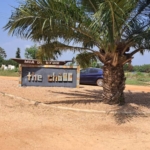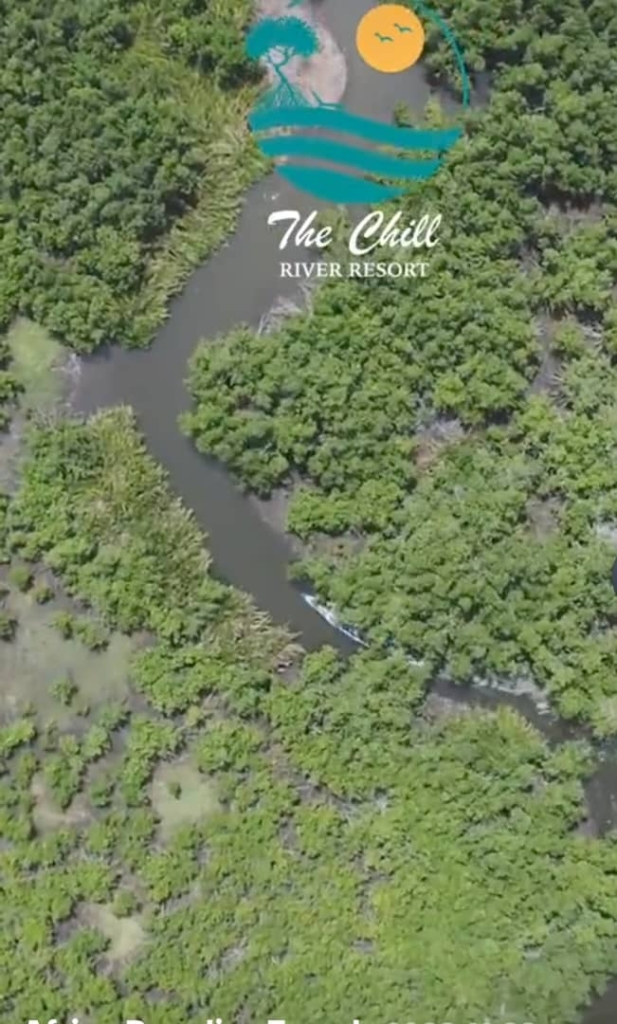
Nestled quietly along the tranquil banks of the Volta estuary, Chill River Resort in Tunu is fast becoming the pride of the Anloga District—an oasis of calm, eco-friendly luxury, and outstanding hospitality. Guests describe it as “a home away from home,” while residents say it is the single establishment redefining tourism potential in the area.
But despite its rising reputation, the poor state of the Anyanui–Tunu road in the Volta region continues to cast a shadow over its progress.

Even with the deplorable road conditions leading to the resort, visitor numbers have grown steadily, with many praising its serenity, welcoming atmosphere, and the exceptional professionalism of its staff. Workers are widely described as humble, attentive, and deeply committed to guest satisfaction—qualities that keep guests returning.

For management, hospitality is more than service; it is a duty.
“The guest is very, very important to us,” said Manager Poul Mckeizie Nii Clootey Foli Thompson. “The guest pays for the services, and without giving them the needed smile and good service, we end up being zero. So we do whatever it takes to make them feel welcome and at home.”

He explained that the resort’s unique riverside location offers something most hotels cannot guarantee—privacy and uninterrupted peace.

“Many hotels are beautiful but noisy. Here, guests have their privacy. They have everything they need at a standard hotel, and we ensure they leave with good memories that make them return,” he said.

A Beacon of Excellence, Held Back by Poor Roads
Residents and tourism stakeholders say Chill River Resort has become the benchmark for hospitality in the district. However, the deteriorating road network—especially the stretch from the junction to the resort—continues to limit its potential and hinder broader tourism growth.
“The resort is one of our biggest assets,” a resident shared. “But the road is a major setback. If the government fixes it, more tourists will come, and that means jobs and development.”

According to the resort’s manager, management has been carrying a burden that should not be theirs: constructing and maintaining an access road almost single-handedly.
“From the main road to the beach road and our junction, the entire stretch is a challenge,” he lamented. “Initially, there was no road at all. It was our management that opened up the place so the community and our guests could have access.”
He described how the resort has repeatedly used its own resources to improve the road—trucking in laterite, gravel, and chippings; hiring excavators and heavy machinery; and employing local labourers—only for rains to wash the work away.
“At least every week, people get to the junction and call to say their cars can’t continue because the road is too bad. Some even return home without reaching us,” he noted. “It affects us badly. We pay tolls, property rates, and we contribute to the local economy, yet the assembly has barely stepped foot here in years. We are pleading—government should come to our aid.”
Unlocking Tourism Potential
Tourism advocates argue that fixing the access roads would be transformative—not only for Chill River Resort but for the entire tourism ecosystem of the district. The area boasts rich cultural heritage, stunning river and beach views, mangroves, craft traditions, and eco-tourism opportunities. Yet poor road infrastructure keeps visitor numbers lower than they could be.
Improved access, they say, would drive economic growth, boost local businesses, and increase internally generated funds for the district assembly.
A Call for Urgent Intervention
For now, Chill River Resort continues to thrive—offering comfort, peace, adventure, and world-class hospitality. But residents, tourism players, and management all agree that the full potential of this hidden gem can only be unlocked when government invests in the road linking Tunu to surrounding communities.
“Tourism contributes massively to the country’s economy,” the manager added. “We are doing our part, and we need government to do theirs.”




